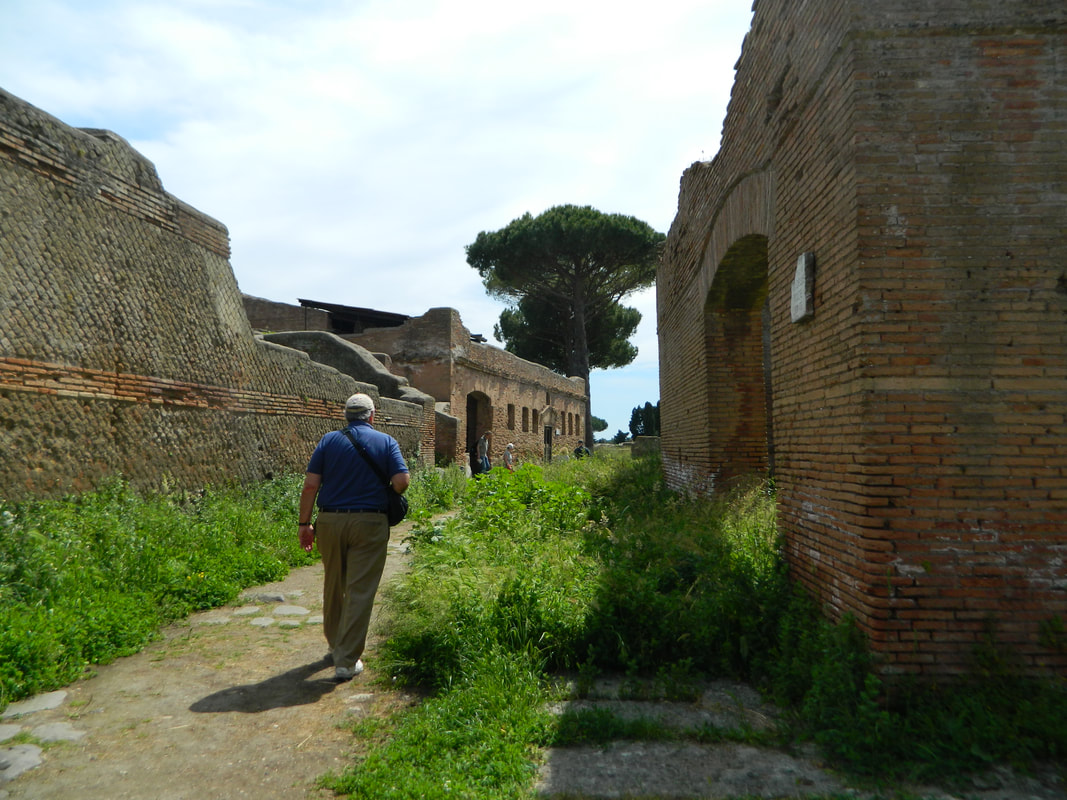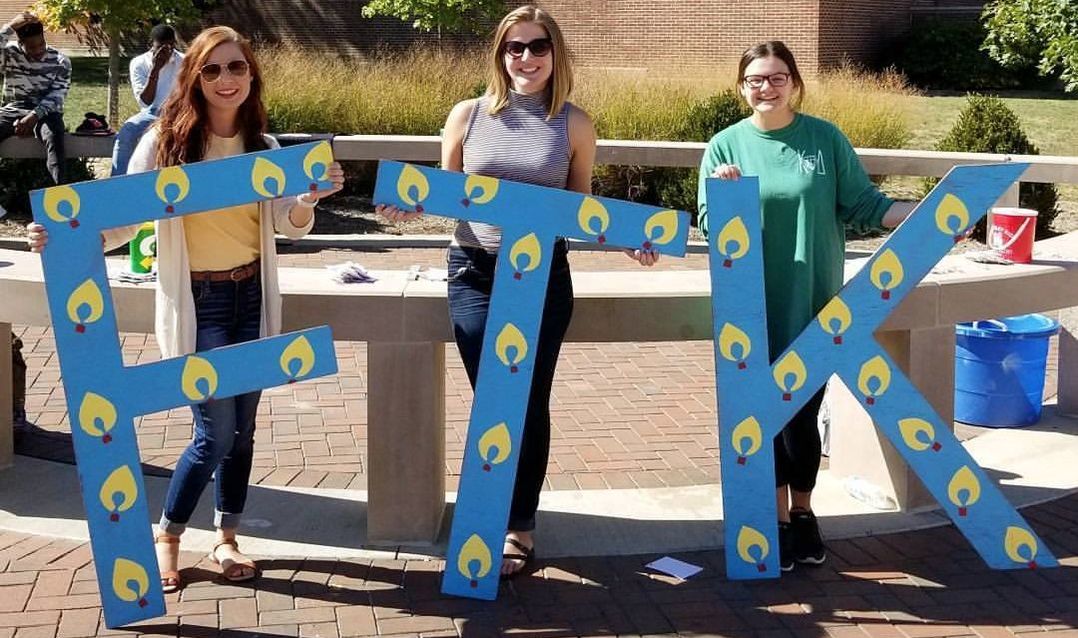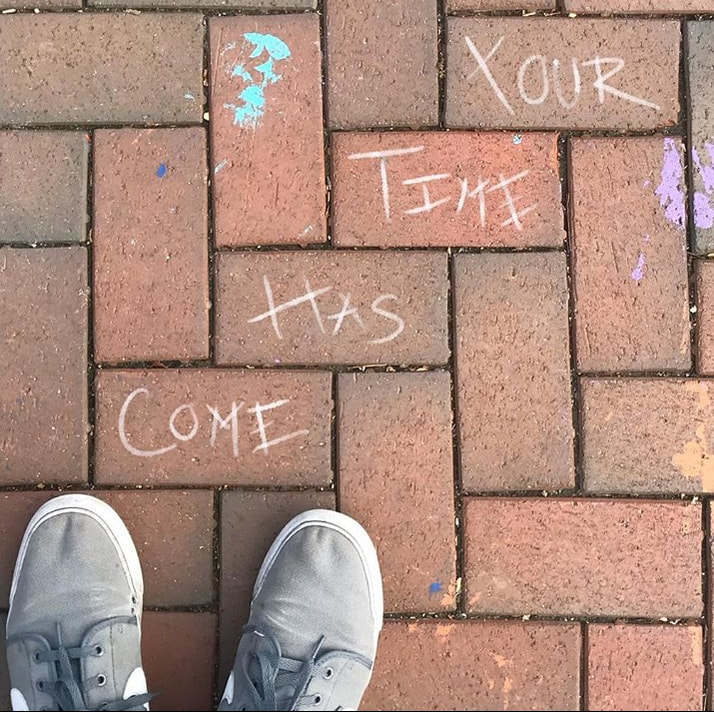By Claire Boenitz
Dr. Ruebel left an impact on everyone he met — and even those he didn't. Claire Boenitz, reacting to Ruebel's Odyssey — an Honors special edition publication — shares her impressions of Dr. Ruebel's legacy and his passion for students.
I remember the student (whose name escapes me now) who introduced me to the Honors College during my campus tour. They told me that the Dean had fallen ill, and that was why he was not there to greet us. I remember hoping for the Dean’s recovery.
I remember the few freshmen I knew who had met the Dean, Dr. James Ruebel. They spoke of how kind and energetic he was, full of appreciation and humor. I remember hoping that someday I could have a conversation with him. I’d heard whispers of his photographic memory – his ability to recognize you, what you were doing with yourself, and how to make you feel welcome.
And I distinctly remember the secondhand pang of grief I felt on October 10, 2016. The day the entirety of the Honors College received a sobering email: Dr. James Ruebel had passed away.
The handful of upperclassmen I’d met were absolutely heartbroken, as well as the Honors faculty. Dr. Ruebel shared such strong relationships with everyone, it seemed. No one in the Honors College was more than an email or a trip to the Honors House away from a friendly conversation with him.
Not only was he a friend to all, he was a fierce pursuer of knowledge, both for himself and for others. He sought to redefine the Honors College itself during his time at Ball State, and actively encouraged everyone he could to contribute and build up new ideas, new visions. Through this devotion to his students and his university, he helped to nourish the Ball State Honors College into an institution that stands out amongst others of its kind. It’s clear Dr. Ruebel’s interest was always with his students; no matter what barriers he broke or opportunities he explored, he always seemed to bring it back to the Honors College.
If there was one thing Dr. Ruebel loved as much as the Honors College, it was anything Roman. Though he resided in Indiana, the man’s heart and soul was always wandering the streets of Rome, absorbing everything that he could and putting it back out into the world in his lessons and discussions. His unbridled passion for Rome, however, was not what he wanted his students to share with him. No, he wanted to invoke the passion rather than just its subject. He invited, he argued, and he prodded those around him just enough to make them pause and think.
I would say, “if the Honors College were a family,” and draw some metaphor about Dr. Ruebel being the quirky-but-wise grandfather who always left you with more questions than answers, and who took great pleasure in asking, “so what?” any time you attempted to prove something you believed. That metaphor, however, is not wholly figurative – the Honors College most definitely is a family. That was a message that Dr. Ruebel always conveyed. He wanted you to succeed and learn to think for yourself, but most importantly, he wanted you to belong.
“You cannot be yourself by yourself. We do and must define ourselves in relation to others,” is a quote of his —the end of his National Collegiate Honors Council presidential address. Dr. Ruebel was a proud, unwavering advocate of pursuing yourself through learning and experiencing, and members of the Honors College are still guided by his wisdom and living in his legacy. We in the Honors College never have to be ourselves by ourselves, which I firmly believe is why Dr. Ruebel was so determined to implement courses that involve discussion and self-disclosure. We all light our own paths through the Honors College, but in many ways, Dr. Ruebel laid those stones for us to traverse with enthusiasm and purpose.
Even those of us who never met him in life still feel the echoes of his influence as we set off down our own paths toward greater things. I can only hope that he would be proud.
I remember the few freshmen I knew who had met the Dean, Dr. James Ruebel. They spoke of how kind and energetic he was, full of appreciation and humor. I remember hoping that someday I could have a conversation with him. I’d heard whispers of his photographic memory – his ability to recognize you, what you were doing with yourself, and how to make you feel welcome.
And I distinctly remember the secondhand pang of grief I felt on October 10, 2016. The day the entirety of the Honors College received a sobering email: Dr. James Ruebel had passed away.
The handful of upperclassmen I’d met were absolutely heartbroken, as well as the Honors faculty. Dr. Ruebel shared such strong relationships with everyone, it seemed. No one in the Honors College was more than an email or a trip to the Honors House away from a friendly conversation with him.
Not only was he a friend to all, he was a fierce pursuer of knowledge, both for himself and for others. He sought to redefine the Honors College itself during his time at Ball State, and actively encouraged everyone he could to contribute and build up new ideas, new visions. Through this devotion to his students and his university, he helped to nourish the Ball State Honors College into an institution that stands out amongst others of its kind. It’s clear Dr. Ruebel’s interest was always with his students; no matter what barriers he broke or opportunities he explored, he always seemed to bring it back to the Honors College.
If there was one thing Dr. Ruebel loved as much as the Honors College, it was anything Roman. Though he resided in Indiana, the man’s heart and soul was always wandering the streets of Rome, absorbing everything that he could and putting it back out into the world in his lessons and discussions. His unbridled passion for Rome, however, was not what he wanted his students to share with him. No, he wanted to invoke the passion rather than just its subject. He invited, he argued, and he prodded those around him just enough to make them pause and think.
I would say, “if the Honors College were a family,” and draw some metaphor about Dr. Ruebel being the quirky-but-wise grandfather who always left you with more questions than answers, and who took great pleasure in asking, “so what?” any time you attempted to prove something you believed. That metaphor, however, is not wholly figurative – the Honors College most definitely is a family. That was a message that Dr. Ruebel always conveyed. He wanted you to succeed and learn to think for yourself, but most importantly, he wanted you to belong.
“You cannot be yourself by yourself. We do and must define ourselves in relation to others,” is a quote of his —the end of his National Collegiate Honors Council presidential address. Dr. Ruebel was a proud, unwavering advocate of pursuing yourself through learning and experiencing, and members of the Honors College are still guided by his wisdom and living in his legacy. We in the Honors College never have to be ourselves by ourselves, which I firmly believe is why Dr. Ruebel was so determined to implement courses that involve discussion and self-disclosure. We all light our own paths through the Honors College, but in many ways, Dr. Ruebel laid those stones for us to traverse with enthusiasm and purpose.
Even those of us who never met him in life still feel the echoes of his influence as we set off down our own paths toward greater things. I can only hope that he would be proud.





 RSS Feed
RSS Feed
